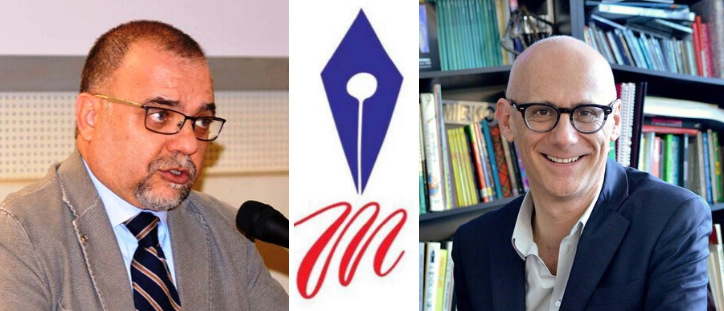The spot supporting Italian publishers actively involved in disseminating information, which has been airing from March 24 on all Mediaset channels, had already been presented in a previous article by École Marengo. This very spot was supposed to start airing on April 3, on “International Fact Checking Day”, but given the current proliferation of fake news concerning the recent health crisis in our country, the group has decided to immediately demonstrate their commitment.
Communication workers as a whole are acutely aware of the need to counter the pervasive tendency to indiscriminately distribute written content and images anywhere and without any restrictions. In this regard, here is the dialogue between two specialists in the field of communication: Efrem Bovo, President of ODG (Italian Journalists’ Association) Piedmont Press Office and also in charge of the Union Journalists and Communicators of Europe, and Mirko Pajé, Mediaset Creative Director in charge of Image Coordination.
“We agree about the need to raise awareness on a daily basis in the suburbs, where information and communication are heavily polluted at the source” explains Efrem Bovo. “What is missing is greater awareness in journalism as well as in professional communication. Being part of a professional board is not sufficient, given the current proliferation of media and the ever-evolving media landscape”.
Indeed, creating a unified network of professionals- who can communicate the best course of action to disseminate quality information, thus collaborating in order to devise an effective strategy against fake news and allowing the public to be able to distinguish them even after the current emergency- can make a dramatic difference.
After Efrem Bovo’s declaration, Mirko Pajé’s prompt answer:
“In these times of uncertainty and confusion, there needs to be a collective effort, so that we may still have safe anchors” explains Creative Director Pajé, “…in order dispel the fear of unreliable information that can inevitably affect each of us under such difficult and unforeseen circumstances. Citizens need to be aware that Responsible publishers do exist. This term refers to accountability and source transparency, at the risk of losing face. This is what truly makes a difference as opposed to the anonymity granted by the web, not only to individuals, but also to blogs and “ghost” websites. If something were to be written in “News Today” (hypothetical example), it might not even be an actual newspaper, it could actually be any man reading some delirious nonsense online and sharing it in turn. This is where the reliability and credibility of professional “brands” can truly make a difference: television stations, radios, well-known papers- both in print and online- reliable and responsible newspapers, which users trust because of their proven professionalism. It is thanks to these values that Publishers at any level have managed to defend and inform citizens, distinguishing themselves from those who spread fake news. It is especially through the contribution of television, which disseminates information thanks to the shared efforts of our journalists and technicians, that a fundamental function of freedom and democracy can be fulfilled. To quote our spot: “news are a serious matter”. This point needs to be stressed: only professionals can evaluate, select, manage and, if necessary, reject news stories. Information professionals are in every respect comparable to professionals such as engineers, mechanicals and surgeons. Would you ever let any passerby operate on you?”.
When GUS Piedmont calls, Mediaset answers, thus confirming their common goal to devise a shared strategy in order to combat the spread of fake news, not only during these times of emergency, but also in the future.
(Translation by UJCE)
